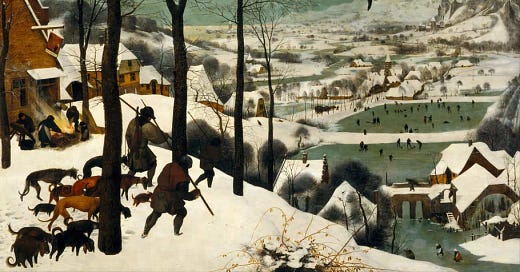To know, is to know that you know nothing. That is the true meaning of knowledge.
- Socrates
I’m starting the year off strong with a ton of new resources as I continue my personal development and self-education. I’ve got a ton of goals for the year so hopefully these help out whoever is reading. Philosophy and classic literature will be the main focus in my reading challenge this year.
Books:
For a bit of background, I was originally born in Bulgaria - a country that Russia has strongly influenced over time. For this reason, I’ve always wanted to get into classic Russian literature and did so with Dostoevsky and Bulgakov. However, I’ve read The Brothers Karamazov and Master and Margarita (very influential books) and failed to connect to the deeper meaning of each. So far, Tolstoy’s masterpiece has not had this impact.
Often regarded as the best novel of all time, Anna Karenina explores the cultural revolution that took place in late 19th-century Russia. The dynamic characters are split between the traditional, Eastern Orthodox moralists and the modern materialists, creating a somewhat clashing environment. I’m only about a third through this 800-page classic, so there’s a lot left to go.
The Birth of Tragedy and The Case Against Wagner by Friedrich Nietzsche
Nietzsche has likely had the largest impact on me of any philosopher I’ve read so I love digging through his work. Both of these books are some of the less talked about ones out of his repertoire but nonetheless have strong theses and connection points to his main ideas.
The Birth of Tragedy explores Nietzsche’s duality in the Greco-Roman sphere (the intellectual dichotomy between the Dionysian and the Apollonian). His classical philologist education is highlighted best in this work which clearly sets the foundation for his overarching moral framework. Meanwhile, in The Case Against Wagner, he discusses music’s role in shaping ideological movements.
The Black Swan by Nassim Nicholas Taleb
“History doesn’t crawl, it jumps” says Taleb in The Black Swan. This book is a study of highly improbable events, also known as “Black Swans". The thought process behind this is by understanding key inflection points throughout history, we will have a better idea of the future ahead. As a thought experiment, I suggest every reader briefly think back on their lifetime to the key events that shaped how you ended up where you are today. Do you think you could’ve predicted those things at the moment?
Podcasts:
As someone who is interested in startups as well as actively writing on Substack, this was a no-brainer when I saw the notification pop up. The founder, Chris Best, previously founded Kik, the app that started my generation’s online communication wave.
This isn’t usually on Spotify but someone decided to upload this as a Podcast and I’m very grateful. Dan Carlin’s Hardcore History series is some of the best long-form history content ever made. He doesn’t just state the facts, his storytelling and passion really express just how insane some historical events were, and WWI is no exception. It often gets overshadowed by the Second World War, but I think that The Great War is very overlooked in its influence on 20th-century great power politics.
YouTube Channels and Videos:
Every ambitious person in their 20s needs to watch this. Seriously.
Just for fun but I think Tim Dillon has a way of blending comedy with real-world problems like no one else. He is an expert at crafting ridiculous hypothetical scenarios that don’t really seem too far-fetched given how crazy the world is…
That’s it for the month! Have a great weekend.



